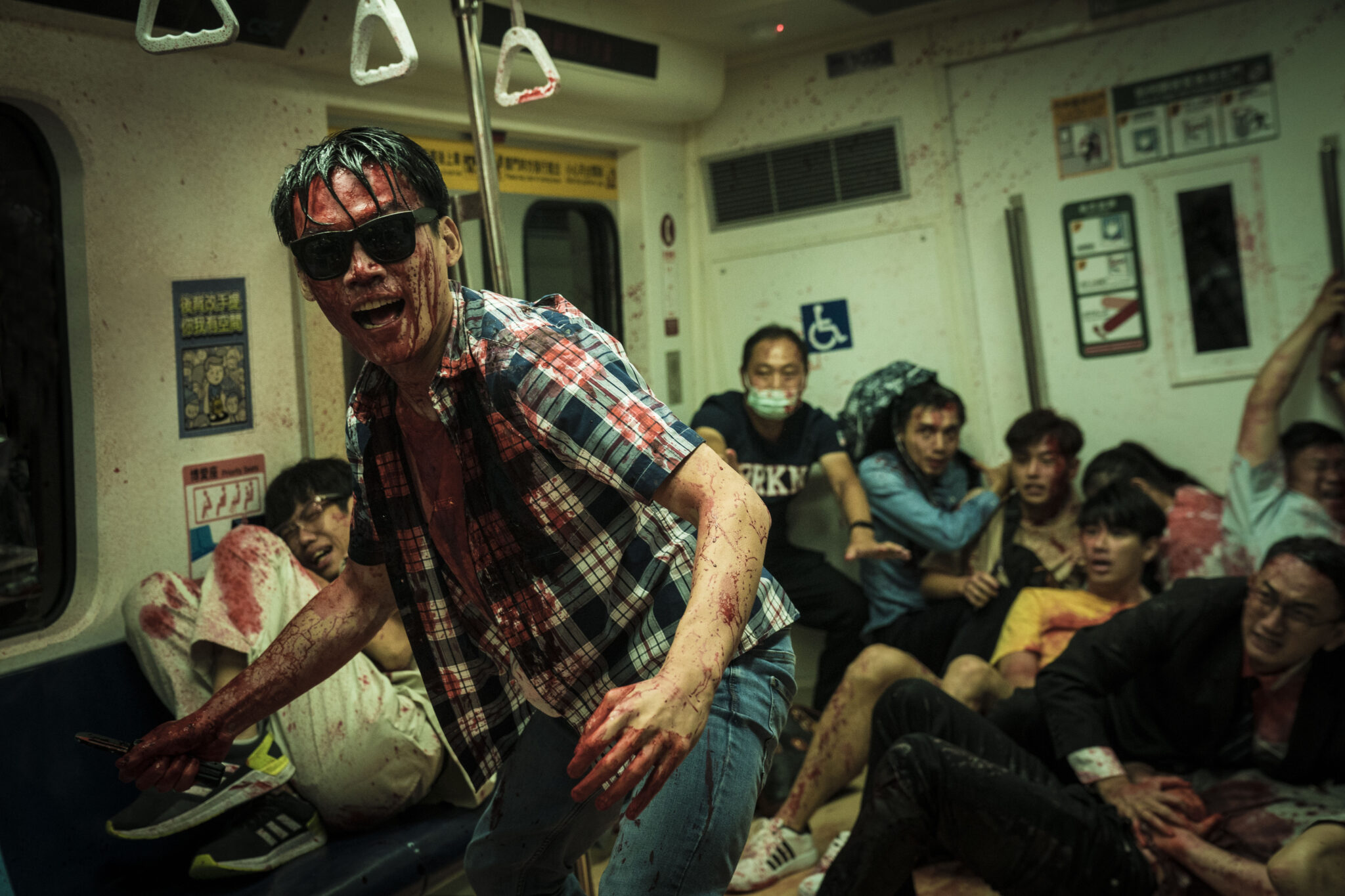What to Watch Verdict
'The Sadness' brings the madness as buckets of gore blend 'The Crazies' with 'The Purge' in this viral commentary with a gruesome affliction.
Pros
- +
👁️ Off to the races with squeamish gore.
- +
👁️ Truly a nasty one.
- +
👁️ There's something so unnerving about each infected monster's enjoyment.
Cons
- -
👁️ The third act breaks some momentum.
- -
👁️ Violence is the spectacle, almost too much.
- -
👁️ Unafraid to go places some won't follow.
The Sadness is part of our Fantasia Fest coverage.
A Canadian filmmaker under Taiwanese cover has created something so reflexively American with The Sadness. From conspiracy theories about doctors flubbing viral warnings to mutation variant threats to a pandemic shooed away by governments in election years, writer and director Rob Jabbaz might as well dub his fantasy "Alvin" outbreak "COVID-19" (like the signs aren't visible from Pluto). Although, The Sadness avoids associations to dreaded "post-pandemic" cinema such as Songbird because it's more indebted to Rabid, The Crazies, and other contagion massacres on the outskirts of zombie cinema. The Sadness is also meaner than Gordon Ramsay during an error-filled service on Hell's Kitchen (and then some) as morose vileness and tremendously unsettling violence are of glorified, gorified extremes.
One might argue The Sadness is a love story; panicked Jim (Berant Zhu) zips around on his motorbike searching for sweetie Kat (Regina). The genre-churning conflict? Infected Chinese civilians have now become ravenous, sexually deviant berzerkers because the Alvin virus has evolved in a way that disrupts limbic systems. Jim witnesses unspeakable horrors from barbed-wire nut shots to defaced breakfast chefs, praying he rescues Kat before even a single rampaging sicko licks their lips in anticipation. At the very least, Jim must outpace a leery pervert businessman (Tzu-Chiang Wang) who's had his eye on Kat even before Alvin erased his morality.
The Sadness is one of the ickiest, most sadistic outbursts of unbridled horror aggression I've beheld in a spell—until the third act's narrower pivot. Viewers with low tolerances for exploitation that morphs ordinary townsfolk into blackened-eyed, bloodthirsty, sexually violent cretins might not stomach what Jabbaz, say, thrusts into gouged eye sockets. From the moment scalding french fry oil eases a granny's desire to peel layers of flesh from a cafe worker's cheek, Jabbaz alienates humanity by unleashing his horde of soulless viral demons who exist to sin. It's vindictively vicious, sensationally sadistic, and that's coming from a midnighter schlock-lover who cherrypicks festival watches based on how much redness is shown on a title's poster.
Jabbaz's special effects department toys around with a blend of practical and digital that provides meaty flesh chunks when cowardly hospital attendees are karmically bone-sawed—animation is sparingly applied by necessity when cackling infected leap out windows. The Sadness sustains laser focus on barbaric brutality versus elaborate kill contraptions because that's what this transmittable "Purge Night" outbreak enhances in victims. Fire extinguishers cave skulls into debris, umbrellas puncture eyeballs, and brothers (or fathers) prison-shank small children over diner tables. The Sadness serves tasty morsels of carnage, but Jabbaz is more interested in a national breakdown that evokes the primality hidden behind our cognitive ability to decipher right (protecting loved ones) from wrong (blood orgies in the street). It's not an easy watch nor comfortable as a disclaimer; not something I'd describe as exploitation for indecency's sake either.
Where The Sadness breaks stride is in a microcosmic finale when Kate encounters a virologist and scrambling pursuers vanish. Jim's quest to locate Kate becomes a bit overshadowed—aside from his horniness for a severed mannequin head—as the promise of Train To Busan parallels fade. Jabbaz squeezes every ounce of mania from large assemblies breaking into smiling rages as the pathogens pass from bites, vomit, or saliva, especially a subway sequence as howls of passionate criminal ecstasy backdrop acts of blood-soaked cruelty. That's never replicated when Kat stumbles into the nursery ward behind a heavy steel door, albeit where Jabbaz supposedly investigates the actual monsters in this pandemic scenario (what scientists are willing to do for the greater good, etcetera). Scope is essential to Jabbaz's narrative, always best when minor leaguers bash swollen hostages or chaos becomes a stylistic slathering of sanguine slop under writhing bodies.
I give The Sadness credit because it's one of those pit-in-your-stomach experiences that rarely relents once at top speeds. Rob Jabbaz never makes me question why a caucasian filmmaker is helming a nihilistic, appalling display of Chinese devastation because the failed outbreak response framework is universal—even more relatable for American and Canadian quarantiners. Every scene is meaner and less restrained than the last, grinning in the face of hope as grenades explode craniums like in Scanners. Do I dare label such unspeakable expressions of societal collapse a breath of fresh air given every available gasp, shiver, and genuine shock? The Sadness is authentically deranged and always hungry for more audience discomfort; what an appetite for deconstruction this movie boasts.
The latest updates, reviews and unmissable series to watch and more!
Matt Donato is a Rotten Tomatoes approved film critic who stays up too late typing words for What To Watch, IGN, Paste, Bloody Disgusting, Fangoria and countless other publications. He is a member of Critics Choice and co-hosts a weekly livestream with Perri Nemiroff called the Merri Hour. You probably shouldn't feed him after midnight, just to be safe.


